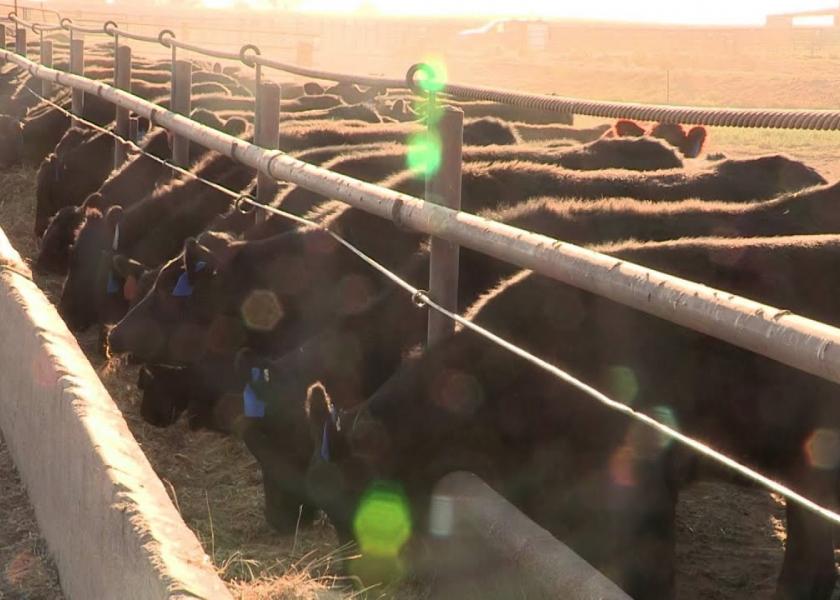Could Industrialized Hemp Have ‘High’ Potential in Low-Stress Cattle Production?

Feeding cattle industrial hemp may reduce stress levels and increase the time cattle lie down, Kansas State University researchers found in a recent study.
“We might have a more natural way to reduce stress in cattle,” Mike Kleinhenz, assistant professor at Kansas State’s College of Veterinary Medicine said in a recent KCUR news article. “And we’re just starting to scratch the surface on some of the benefits.”
Kleinhenz led the study feeding 16 Holstein steers over two weeks. Half of the cattle were fed a traditional ration, while the other half consumed a ration with industrial hemp.
Industrial hemp is of the cannabis variety, containing the chemical compound CBD with lower levels of the psychoactive component THC, the study explained. “There are numerous uses for industrial hemp and its various plant components. These uses include human therapeutics, fiber for plastics and hempcrete and biofuel production,” the study said.
In addition, “Certain industrial hemp plant components may be suitable for inclusion into cattle rations since they have favorable crude protein and digestibility profiles,” the study explained.
Over the two-week study, researchers tracked cattle movement and monitored blood levels of biomarkers of stress. Finding a notable difference, the hemp-fed cattle spent more time lying down and had lower levels of inflammation and the stress hormones present in the blood, explained the study.
Researchers found that the hemp was readily absorbed through the rumen and did not accumulate in the animal’s system.
During times of stress, such as weaning or transport, cattle and ranchers alike might benefit from the use of hemp in rations. Specifically, stress-related respiratory issues and infections may be decreased.
Growing hemp as an agricultural commodity first began with legalization in the 2018 Farm Bill.
Much like ethanol production and the distiller grain by-product, CBD oil is extracted from hemp seeds and flowers and produces a large amount of plant material as waste. Containing trace amounts of CBD or THC, this waste could be fed to livestock to produce these calming effects.
“We want to understand the whole timeline, from when an animal last consumes (hemp compounds) to when it can safely enter the food chain and not have those compounds in the system,” Kleinhenz said in the article.
More studies will be conducted to better understand how cattle absorb the CBD compounds and the potential effects on the meat product. At this time, the U.S. Food and Drug Administration has not approved hemp to be fed to livestock or pets.







